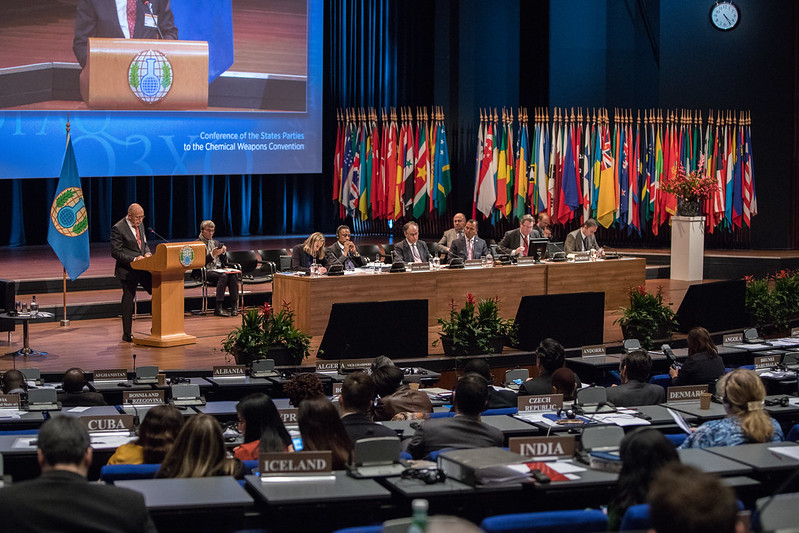Novichok Nerve Agents and the CWC: New UNIDIR Report by CBWNet Member Alexander Kelle
In a new report, Dr Alexander Kelle, Senior Researcher at the Berlin Office of the Institute for Peace Research and Security Policy (IFSH) at the University of Hamburg, describes the process that took place at the Organisation for the Prohibition of Chemical Weapons (OPCW) following the assassination attempt in Salisbury in the UK with a novichok nerve agent.
In late 2019 this process resulted in the first ever amendment of Chemical Weapons Convention (CWC) Annex on Chemicals. As an attempt to resolve compliance issues, the OPCW Conference of the States Parties adopted proposals to add novichok nerve agents to the CWC’s Schedules. This represented an important manifestation of cooperation in a CWC-implementation environment that is largely characterized by concerns about compliance and outright accusations of non-compliance.
Following a description of the science involved in the Schedule amendment, the report analyses the amendment’s suitability for dealing with this particular challenge to the norm against chemical weapons use and arrives at two main conclusions: First, the report concludes that CWC rules and procedures for Schedule amendments do work and have been successfully implemented by the OPCW. Secondly, it argues that whereas Schedule amendments are useful, they are not sufficient for implementing the general purpose criterion in the Convention.
Therefore, the author recommends that CWC states parties should consider the re-affirmation and strengthening of the general purpose criterion during the 2023 CWC Review Conference.
The report was published at the United Nations Institute for Disarmament Research (UNIDIR). Click here to read the full report.
Subscribe to our newsletter for more analysis on all things chemical and biological weapons.
